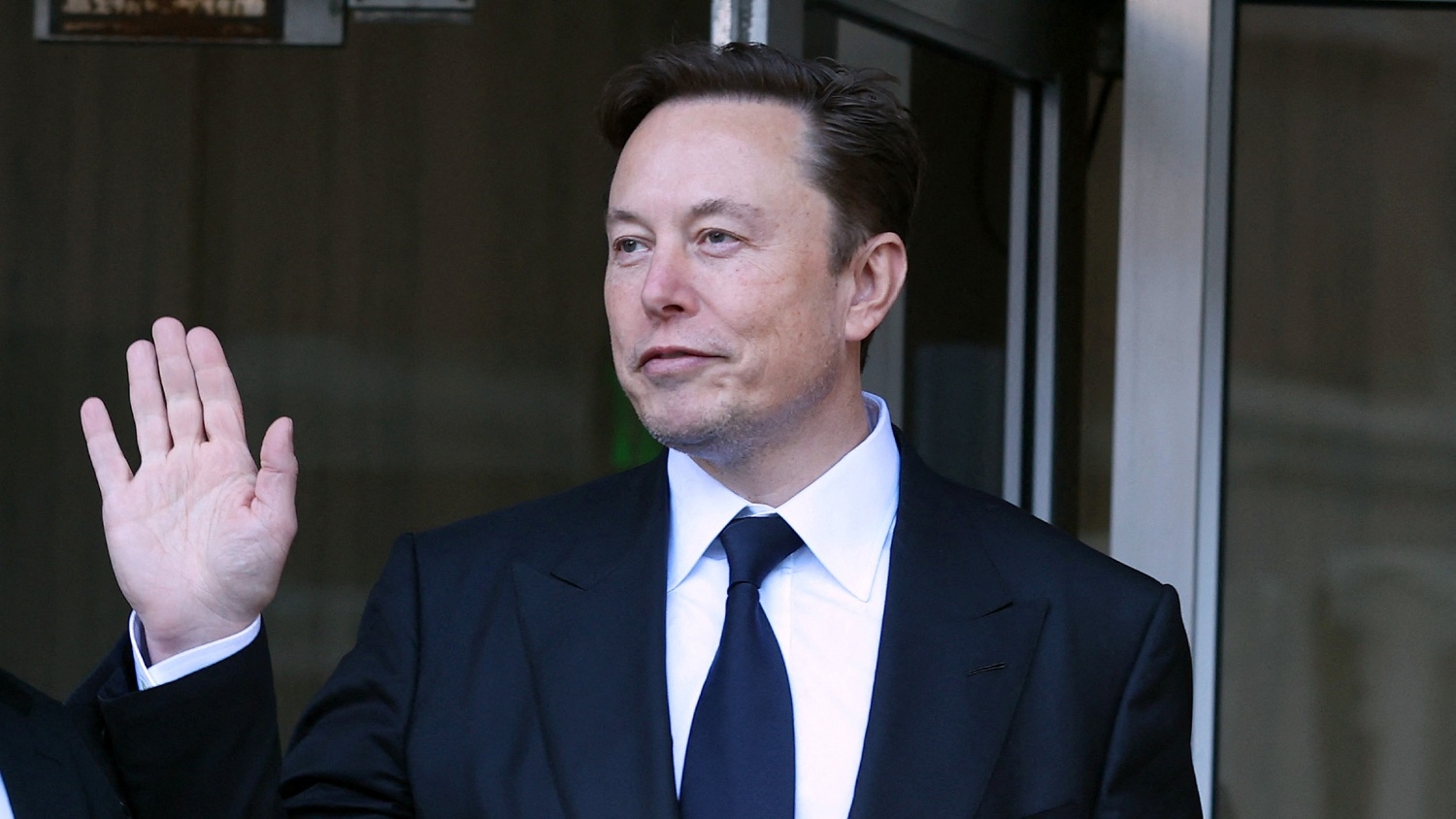'Utterly false': Elon Musk denies he is in talks with Saudi Arabia on Tesla plant

Billionaire Elon Musk has slammed a Wall Street Journal article claiming that he is in talks with Saudi Arabia to establish a Tesla electric vehicle factory in the kingdom as "utterly false".
The WSJ claims that talks between the Saudis and Musk are still in their early stages. But as part of the negotiations, Saudi Arabia has offered Tesla the right to purchase certain metals and minerals the company needs for its EVs from countries where the kingdom is expanding its mining footprint, such as the Democratic Republic of Congo.
The deal could be a boon for Saudi Arabia’s ambitions to expand into manufacturing, renewable energy and mining, as part of Crown Prince Mohammed Bin Salman’s Vision 2030 plan.
The kingdom says that $1.3 trillion of minerals and metals are buried in its soil. Ma'aden, the Saudi state-owned mining giant, announced a new joint venture with the kingdom’s sovereign wealth fund in January, as it goes on the hunt for mining assets abroad.
The WSJ reported earlier that the US and Saudi Arabia are in talks to secure critical metals in African countries, including the Democratic Republic of Congo, Guinea, and Namibia. The deal would grant US companies the right to buy some of the production.
Stay informed with MEE's newsletters
Sign up to get the latest alerts, insights and analysis, starting with Turkey Unpacked
The US and its geopolitical rival, China, are both racing to secure rare metals such as cobalt and lithium, which are needed for the manufacturing of batteries, chips, and electric vehicles.
Saudi Arabia is reportedly honing in on a struggling copper and Cobalt mine in the Congo owned by commodities-trading giant, Trafigura. The Saudis have extended a financing offer to the company in exchange for access to the metals that could be used to supply a Tesla factory in the kingdom, the WSJ reported.
Sealing a deal with Tesla would be a major boost for Saudi Arabia’s bid to diversify its economy and expand into sophisticated manufacturing. Those efforts are being led by Saudi Arabia’s $776bn Public Investment Fund (PIF), which is chaired by Crown Prince Mohammed bin Salman.
The PIF has a majority stake in EV maker, Lucid, which opened a factory on Saudi Arabia’s Red Sea coast this month and started some vehicle reassembly. The PIF is also plowing the kingdom’s oil resources into Red Sea tourism projects and the futuristic $500bn mega-city, Neom.
But Saudi Arabia has been less successful at attracting foreign direct investment into its projects and its idea to combine a domestic mining industry with EV manufacturing isn’t new.
Musk talks to Turkey
Middle East Eye reported previously that Morocco, which has significant cobalt deposits, is pursuing the same goal with car makers.
Meanwhile, MEE reported on Monday that Musk and Turkish President Recep Tayyip Erdogan also held talks on the sidelines of the UN General Assembly about opening a Tesla factory there. Turkey is already a manufacturing hub for automobiles sold in Europe.
Saudi Arabia has deeper pockets, which can help lure foreign companies but also higher labour costs.
If Tesla were to enter Saudi Arabia, it could help draw Saudi investment into a US-backed transit corridor.
The India-Middle East-Europe Economic Corridor, or Imec, aims to establish railway lines and shipping lanes that will pass through the United Arab Emirates, Saudi Arabia, Jordan, and Israel, and then on to Europe. Saudi Arabia says it plans to lay thousands of new miles of rail track, with the aim of supporting domestic manufacturing and mining.
The deal would also represent a new chapter in Musk’s sometimes fraught relationship with Saudi Arabia.
The billionaire courted the PIF as part of his efforts to take Tesla private in 2018. Musk’s text exchange with PIF chief Yasir Al-Rumayyan became the focus of a US Securities and Exchange Commission lawsuit that alleged Musk made fraudulent statements. Musk settled the case.
Middle East Eye delivers independent and unrivalled coverage and analysis of the Middle East, North Africa and beyond. To learn more about republishing this content and the associated fees, please fill out this form. More about MEE can be found here.




.jpg.webp?itok=Vau4d9Sl)
